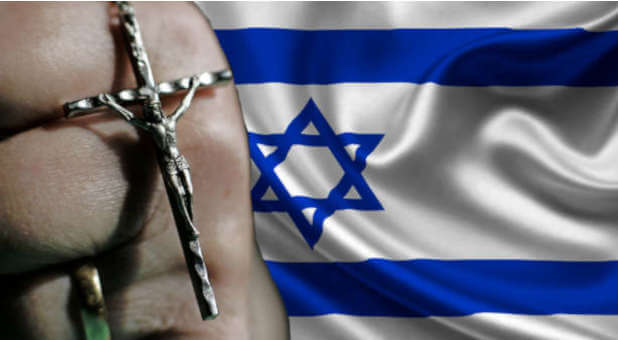As Israel is about to celebrate its 75th anniversary in just a few weeks, the Jewish State finds itself in possibly the greatest internal crisis since the establishment of Israel in 1948.
The heated national debate over judicial reforms has drawn masses of demonstrators into the streets every week since early January. While the new government hoped early on that the protests would fade out over time, the opposite has taken place. The protests have grown not only in number but also intensity.
Major highways in and between Tel Aviv and Jerusalem have been blocked multiple times, causing havoc to many commuters. In a more serious development, hundreds of Israeli reserve soldiers, particularly in such elite units as Israeli air force pilots and intelligence officers, have refused in increasing numbers to show up at their bases for their annual “miluim” (reserve duty) that every soldier in Israel is asked to fulfil until age of 40. Hi-tech leaders here in the renowned ‘Start Up Nation’ have divested hundreds of millions of dollars out of their Israeli accounts to foreign banks. According to some bankers, up to $4 billion in total was removed from the country so far, partly in protest and partly in fear of Israel’s economic future.
This week, the national unrest reached a dangerous peak as the Histadrut, Israel’s national workers union, called for crippling nationwide strikes to stop the judicial reforms. Most notably, Ben Gurion Airport—Israel’s main international air hub—temporarily stopped all flights abroad. In addition, Israel’s diplomatic corps around the world halted their work. Talk of a civil war was heard with frightening frequency. Without a doubt, this has been one of the most critical moments in Israel’ modern history.
So, what is at stake that would cause such a large portion of this nation to sacrifice their time and energy to stop what they see as a coup. Emotions indeed are high! Some observers of this turmoil, including many pro-Israel Christians, reduce the anti-reform protests to a mere showdown between liberal, secular Tel Aviv and religious Jerusalem or between leftists and conservatives.
Others oversimplify matters by pointing to Israeli Prime Minister Benjamin Netanyahu as the problem. For certain, all these issues are relevant to the debate, but the current crisis goes much deeper.
Interestingly enough, the vast majority of Israelis would generally welcome a set of measured, common sense judicial reforms. President Isaac Herzog, the former chairman of the left-leaning Labor party, supports judicial reforms, as does Yair Lapid, chairman of Yesh Atid, the main opposition party who started the protests in January. Even the previous Bennett-Lapid government was working on some very similar judicial reforms and could have enacted them if they had maintained their Knesset majority. So why then the protests?
Aside from the usual party politics and the anti-Bibi sentiments, there are two main reasons why an increasing number of Israelis from all walks of life, both secular and religious, are showing up at protests and calling for reforms based on a broader consensus. Even within Netanyahu’s own Likud party, more and more voices are being heard calling for a compromise.
The issue at stake is how much power should the Supreme Court have and how should the Court’s justices be appointed. And here nearly everyone agrees: Israel’s unelected judges have too much power over laws, even Basic Laws, passed by the democratically elected Knesset. They get too deeply involved in political matters and they are appointed by a majority of fellow judges with only limited say for the Knesset.
All this should now change. …
So, how shall we pray for Israel in these challenging days?
Pray for the political and religious leaders of Israel to have wisdom and grace to restore the unity of the nation. This is essential as Jesus himself said a kingdom divided against itself cannot stand (Mark 3:24). Jewish tradition says that it was “sinat achim”—the hatred between brothers—which led to the Roman exile. Please pray according to Psalm 133:1, which says: “Behold, how good and how pleasant it is for brethren to dwell together in unity!”
I am intrigued that Abraham was 75 years old when he, as the father of faith, entered the Land of Promise (Genesis 12). Let us pray that on Israel’s 75th birthday, they will enter into their spiritual inheritance as a nation. Pray that out of this chaos, Israel will emerge as a light to the nations. Let us pray that this difficult time will cause a time of Israel seeking God and God answering by pouring out the Spirit of grace and supplication upon Israel (Zech. 12:10).

Pray for Israel’s security, as some of her adversaries already sense the vulnerability of the Jewish state amid this internal turmoil. “Behold, He who keeps Israel shall neither slumber nor sleep.” (Ps. 121:4)
For the rest of this article, visit our content partners at icejusa.org.{eoa}
Bring Charisma magazine home with a subscription today!
Dr. Juergen Buehler is the President of the International Christian Embassy Jerusalem.















































